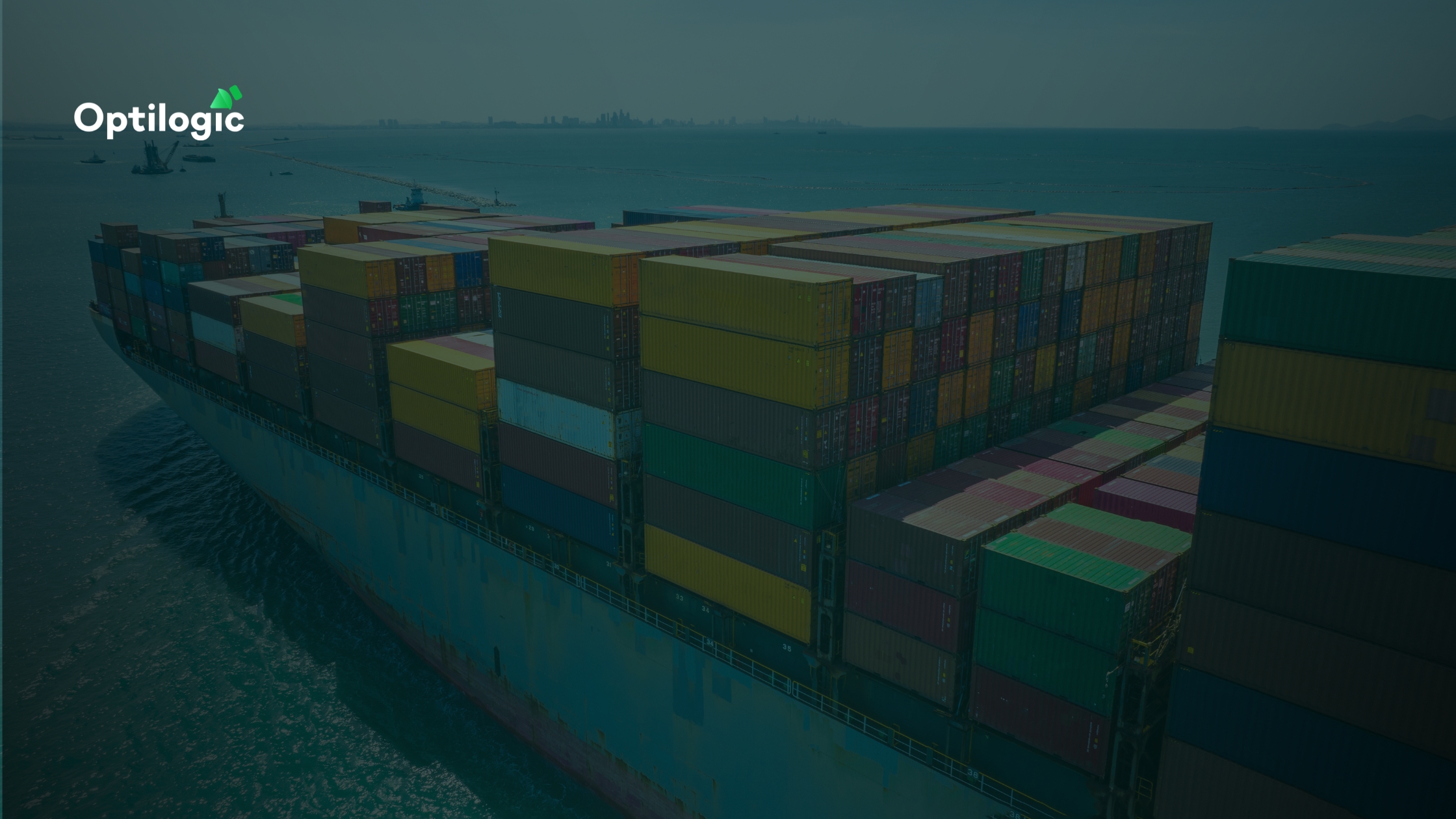
Published by
Published on
November 20, 2025
.png)

.png)


How BigM empowered both technical and non-technical team members to build supply chain analytics workflows in their native language—without learning SQL, ETL tools, or depending on IT.
BigM, a Japan-based supply chain consulting firm focused on solving challenges through digital technology, brings cutting-edge solutions to enterprises across borders. With a mission to enhance sustainability, efficiency, and optimization through advanced technology and global networks, BigM's team consists entirely of supply chain specialists with deep expertise in decision-making, optimization, and supply chain design.
But even with their deep supply chain expertise, they faced a persistent challenge: the steep learning curve of traditional ETL tools was limiting who could participate in supply chain analytics.
"Before DataStar, many of the data sources provided by our clients were in Excel or CSV format,” explains Minoru Muragi, co-founder and CEO at BigM. "That's useful to collect data and gather data. However, it created manual work. When we need to prepare data, it forces us to depend on human skills and knowledge because it’s not standardized."
The problem went deeper than just manual processes. Traditional tools required specialized knowledge—SQL expertise, understanding of complex ETL workflows, extensive training resources. " Although we have members with technical expertise, relying solely on SQL or ETL tools meant that data preparation often depended on a small number of specialists," Minoru notes. "It's sometimes very time-consuming."
For a consulting firm helping multiple enterprises across Japan, this technical barrier meant projects moved slower and fewer team members could contribute to data preparation work.
When BigM discovered DataStar, they found something fundamentally different—a platform that understood supply chain context and could work in multiple languages.
"That's the power of the LLM and natural language," Minoru explains. "DataStar can handle natural language even in Japanese as well. We tested—Japanese can work in DataStar. We put the text and the business side work, so DataStar handles the context of the structure of data and some logic of what we want to orchestrate data. That's really helpful for data cleansing, orchestrating, and preparation for analytics."
The transformation was immediate. Team members without SQL expertise could now contribute to data workflows using natural language prompts in their native language. What previously required technical training became accessible to supply chain analysts focused on business outcomes.
"One strength of DataStar is that AI understands the context behind the supply chain and the data structure of each model, as well as the background of the supply chain logics and terminology," Minoru emphasizes. "It's much easier to input text with natural language, much more for business side people.... They can input and put context very easily and get the result seamlessly."
The impact on BigM's operations has been transformative:
Democratized Analytics: "Some newer team members, who are earlier in their careers, can now participate more easily using natural language without needing to learn SQL or ETL tools," Minoru shares. "These members can utilize DataStar very easily using natural language and our native language, very quickly."
Quality Assurance Made Simple: "We can check the output of the LLM in the same screen and test—is this SQL coming from the LLM correct or not—very easily. That's very helpful, especially for supply chain analysts to collect data, prepare data, transform the data."
Faster Time to Insight: DataStar has enabled BigM to "provide value in reasonable time and much shorter timeframe—from the raw data to the real insight over the supply chain decision-making. And that's a repeatable process."
Business Value at Scale: "DataStar further strengthens our ability to provide value in a shorter timeframe by streamlining data preparation and analysis," Minoru explains. "It's empowering supply chains to get much more value from their data."
The partnership goes beyond just technology. "Optilogic is a very important partner for us because they provide cutting-edge technologies for supply chain decision-making. Optilogic helps seamlessly connect data and algorithms very easily in one platform with very shorter lead time to help solve the challenges and questions that a lot of companies and enterprises are having globally."
For Minoru, DataStar represents something essential about the future of supply chain work—the combination of human insight and technological capability.
"DataStar provides huge difference for us because it helps make supply chain move to quantitative decision-making and connect human knowledge and data seamlessly to solve very complicated situations in supply chains," he explains.
"Supply chain areas usually don't have just one correct answer. There are many ways to achieve the objective and solve challenges—combining both art and science. We need science, we use technologies, and we need some kind of artistic perspective like soft skills of humans and human decision-making… That combination of human and technologies is very important for supply chain."
DataStar enables this vision by removing technical barriers that previously kept business experts from directly engaging with their data, allowing them to focus on the strategic thinking and decision-making that creates real value.
How BigM empowered both technical and non-technical team members to build supply chain analytics workflows in their native language—without learning SQL, ETL tools, or depending on IT.
BigM, a Japan-based supply chain consulting firm focused on solving challenges through digital technology, brings cutting-edge solutions to enterprises across borders. With a mission to enhance sustainability, efficiency, and optimization through advanced technology and global networks, BigM's team consists entirely of supply chain specialists with deep expertise in decision-making, optimization, and supply chain design.
But even with their deep supply chain expertise, they faced a persistent challenge: the steep learning curve of traditional ETL tools was limiting who could participate in supply chain analytics.
"Before DataStar, many of the data sources provided by our clients were in Excel or CSV format,” explains Minoru Muragi, co-founder and CEO at BigM. "That's useful to collect data and gather data. However, it created manual work. When we need to prepare data, it forces us to depend on human skills and knowledge because it’s not standardized."
The problem went deeper than just manual processes. Traditional tools required specialized knowledge—SQL expertise, understanding of complex ETL workflows, extensive training resources. " Although we have members with technical expertise, relying solely on SQL or ETL tools meant that data preparation often depended on a small number of specialists," Minoru notes. "It's sometimes very time-consuming."
For a consulting firm helping multiple enterprises across Japan, this technical barrier meant projects moved slower and fewer team members could contribute to data preparation work.
When BigM discovered DataStar, they found something fundamentally different—a platform that understood supply chain context and could work in multiple languages.
"That's the power of the LLM and natural language," Minoru explains. "DataStar can handle natural language even in Japanese as well. We tested—Japanese can work in DataStar. We put the text and the business side work, so DataStar handles the context of the structure of data and some logic of what we want to orchestrate data. That's really helpful for data cleansing, orchestrating, and preparation for analytics."
The transformation was immediate. Team members without SQL expertise could now contribute to data workflows using natural language prompts in their native language. What previously required technical training became accessible to supply chain analysts focused on business outcomes.
"One strength of DataStar is that AI understands the context behind the supply chain and the data structure of each model, as well as the background of the supply chain logics and terminology," Minoru emphasizes. "It's much easier to input text with natural language, much more for business side people.... They can input and put context very easily and get the result seamlessly."
The impact on BigM's operations has been transformative:
Democratized Analytics: "Some newer team members, who are earlier in their careers, can now participate more easily using natural language without needing to learn SQL or ETL tools," Minoru shares. "These members can utilize DataStar very easily using natural language and our native language, very quickly."
Quality Assurance Made Simple: "We can check the output of the LLM in the same screen and test—is this SQL coming from the LLM correct or not—very easily. That's very helpful, especially for supply chain analysts to collect data, prepare data, transform the data."
Faster Time to Insight: DataStar has enabled BigM to "provide value in reasonable time and much shorter timeframe—from the raw data to the real insight over the supply chain decision-making. And that's a repeatable process."
Business Value at Scale: "DataStar further strengthens our ability to provide value in a shorter timeframe by streamlining data preparation and analysis," Minoru explains. "It's empowering supply chains to get much more value from their data."
The partnership goes beyond just technology. "Optilogic is a very important partner for us because they provide cutting-edge technologies for supply chain decision-making. Optilogic helps seamlessly connect data and algorithms very easily in one platform with very shorter lead time to help solve the challenges and questions that a lot of companies and enterprises are having globally."
For Minoru, DataStar represents something essential about the future of supply chain work—the combination of human insight and technological capability.
"DataStar provides huge difference for us because it helps make supply chain move to quantitative decision-making and connect human knowledge and data seamlessly to solve very complicated situations in supply chains," he explains.
"Supply chain areas usually don't have just one correct answer. There are many ways to achieve the objective and solve challenges—combining both art and science. We need science, we use technologies, and we need some kind of artistic perspective like soft skills of humans and human decision-making… That combination of human and technologies is very important for supply chain."
DataStar enables this vision by removing technical barriers that previously kept business experts from directly engaging with their data, allowing them to focus on the strategic thinking and decision-making that creates real value.
Fill out the form to unlock the full content
Be among the first to explore composable tools that will help you create data agility, resulting in dramatically accelerated modeling and decision-making. Enter your information to request a personal demo!


